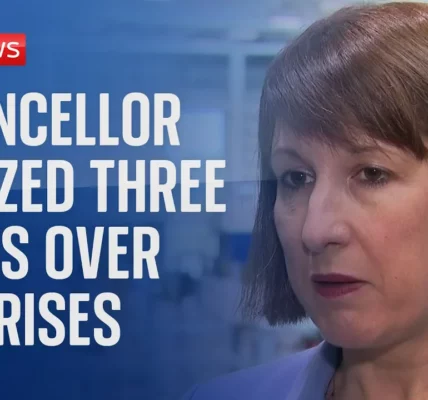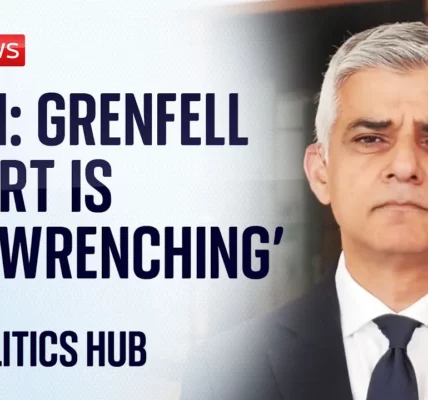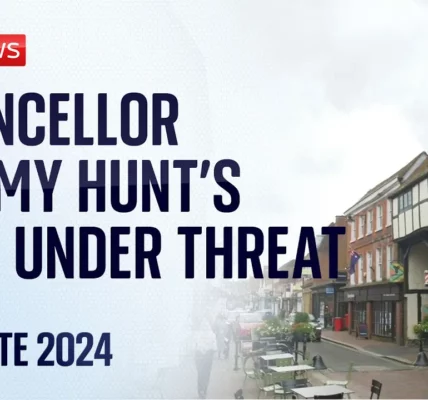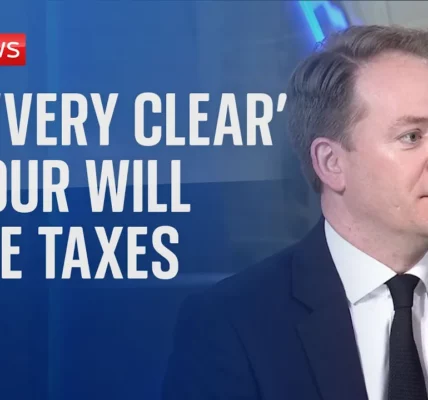The Language of This Election: Analyzing Trump’s Rhetoric and Its Implications

This article delves into the intense language used during the current election cycle, particularly focusing on the rhetoric of Donald Trump, its implications for democracy, and the broader political landscape.
Introduction
The political atmosphere surrounding elections has always been charged with emotion and rhetoric, but the language of this particular election season has reached new heights of intensity. As early voting begins, the statements made by political figures, especially Donald Trump, have raised eyebrows and concerns. This article will explore the complex themes of Trump’s rhetoric, including accusations of fascism, media criticism, and the implications for American democracy.
Understanding Trump’s Rhetoric
Donald Trump’s communication style has often been described as confrontational and provocative. His latest statements reveal a continuation of this trend, particularly as he frames his opponents and critics in stark, often alarming terms.
The ‘Enemy from Within’
In his speeches, Trump often refers to his political opponents as the “enemy from within.” This language not only aims to rally his base but also serves to create a narrative of division within the country. Such terminology can have far-reaching effects on public perception and political discourse.
Accusations of Fascism
Recently, Trump has been labeled a “fascist” by various commentators, including General Mark Milley. This characterization is rooted in concerns about authoritarian tendencies and the potential erosion of democratic norms. Analyzing these accusations is crucial for understanding the political landscape.
- Concerns about authoritarianism
- Historical comparisons to regimes in the past
- The role of military leaders in political discourse
The Role of Media in Political Rhetoric
The media plays a significant role in shaping political narratives. Trump’s interactions with the press have been contentious, often leading to accusations of bias and misinformation.
Criticism of Media Outlets
Trump’s criticisms of various media organizations highlight a broader trend of mistrust in the press. His calls for investigations into media practices reflect a desire to control the narrative but raise ethical questions about free speech and journalistic integrity.
The Impact of Social Media
Social media platforms have become battlegrounds for political discourse, with Trump frequently using these channels to communicate directly with his audience. This direct line of communication allows him to bypass traditional media filters but also amplifies the spread of misinformation.
- Direct engagement with supporters
- Challenges in moderating content
- Influence on public opinion and voter behavior
Future Implications for American Democracy
The language used in this election cycle raises important questions about the future of American democracy. As political rhetoric becomes more extreme, the potential for societal division also increases.
Assessing the Risks
With figures like Trump at the forefront, voters must assess the implications of the rhetoric being used. The potential for authoritarianism looms large, especially if the electorate becomes desensitized to extreme language.
Voter Responsibility
Ultimately, it is the responsibility of the voters to interpret the meaning behind this rhetoric and to act accordingly at the polls. Understanding the nuances of political language is essential for making informed decisions.
Conclusion
The language of this election is not just a reflection of individual candidates but a broader commentary on the state of American democracy. As voters prepare to cast their ballots, it is essential to consider the implications of the rhetoric they have been exposed to. Engage in discussions, analyze the statements made by candidates, and ensure that your vote reflects your values and beliefs. For more insights on political rhetoric, check out our related articles on [Political Communication Strategies] and [The Impact of Social Media on Elections].
“`




